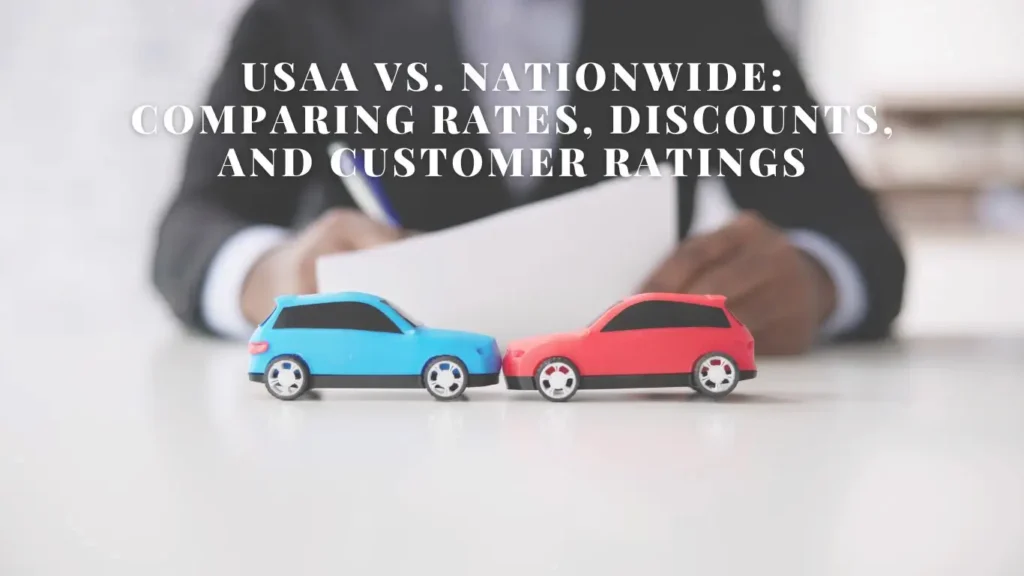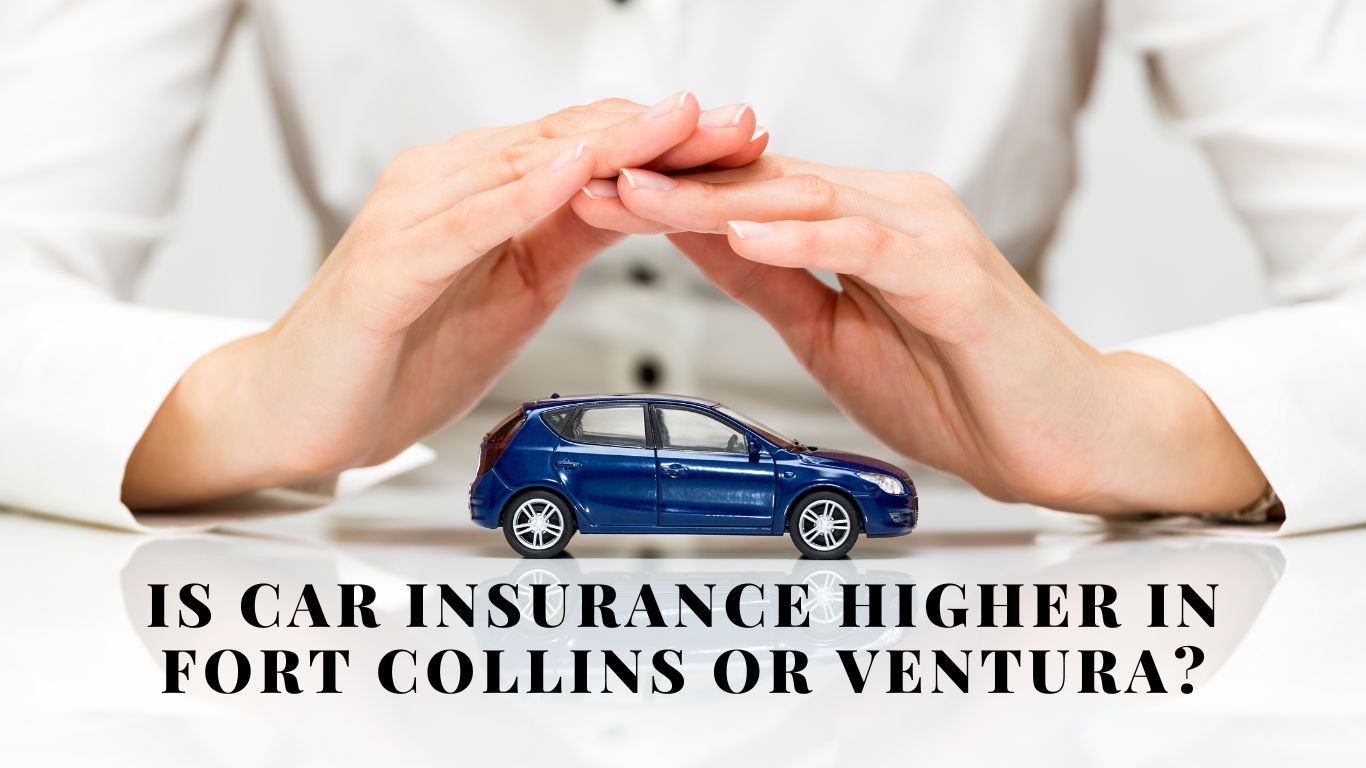If you live in the US and are researching car insurance options, you’ve come to the right place. What is the difference between Comprehensive and Collision Insurance? Which type of insurance plan is suitable for you?
In this post, we will explain to you the basics of Comprehensive and Collision Insurance, the difference between their coverage, cost, and deductibles. Plus, you’ll learn when and how you need both of these insurances, as well as how to find cheaper options.
Read on and learn everything you need to make the right decision.
Understanding Comprehensive and Collision Insurance

Comprehensive and Collision Insurance protects your vehicle from different types of damages. Comprehensive Insurance covers damage caused by natural calamities, theft, fire, vandalism, and animals.
At the same time, Collision Insurance covers the damage caused by accidents, such as vehicle-to-vehicle collision or vehicle overturning. These two types of insurance have differences in coverage and cost, which may affect your insurance selection.
If you want comprehensive protection for your vehicle, it is important to understand both of these options. Let us know their details and advantages and disadvantages in depth.
What Is Comprehensive Insurance?
Comprehensive Insurance protects your vehicle from damages that are not caused by accidents. This includes damages caused by natural calamities, theft, vandalism, fire, and animals. It provides comprehensive vehicle protection, especially for incidents over which you have no control.
What Does Comprehensive Insurance Cover?
Comprehensive Insurance covers the following damages:
- Natural Disasters: floods, storms, earthquakes, and fires.
- Theft: If your car is stolen.
- Vandalism: Deliberate damage caused, such as breaking windows.
- Falling Objects: such as tree branches or construction materials.
- Harm Caused by Animals: Such as an animal being hit by a vehicle.
What’s Not Covered by Comprehensive Insurance?
Comprehensive Insurance does not cover some important things, such as:
- Damage caused due to vehicle accidents (this comes under Collision Insurance).
- Regular wear and tear or mechanical failure.
- Damage caused to another person or vehicle (this comes under Liability Insurance).
How Much Does Comprehensive Insurance Cost?
The cost of comprehensive insurance depends on several factors, such as:
- Model and price of your vehicle: Premiums are higher for expensive vehicles.
- Location: If you live in an area where there is a high risk of natural disasters or theft.
- Deductible: Choosing a lower deductible will result in a higher premium.
On average, comprehensive insurance premiums in the US can $421 annually.
What Is Collision Insurance?
Collision Insurance covers your vehicle if it collides with another vehicle, object, or roadside structure (such as a tree or pole). This insurance is essential for those who want to protect their vehicle from damage caused by any type of accident.
What Does Collision Insurance Cover?
Collision Insurance covers the following events:
- Vehicle-to-vehicle collision: If your vehicle collides with another vehicle.
- Single-vehicle accident: Like your car hitting a roadside wall.
- Damage due to vehicle overturning.
- Collision in parking: Like your car collides with another vehicle in the parking lot.
How Much Does Collision Insurance Cost?
Collision insurance may cost a little more than comprehensive insurance. It depends:
- Your vehicle model and usage.
- Deductible: Lower the deductible, higher will be the premium.
- Driving Record: Drivers with a history of safe driving receive lower premiums.
On average, collision insurance in the US can cost $743 annually.
Key Differences Between Comprehensive and Collision Insurance
Comprehensive and Collision Insurance protects the vehicle from damage caused by various incidents. Comprehensive Insurance covers events like natural calamities and theft, while Collision Insurance covers damage caused by collision. The table below explains the differences between them:
| Incident Description | Type of Claim |
|---|---|
| Damage from hitting a boulder in the road | Collision |
| Damage from a boulder rolling into your car | Comprehensive |
| A tree limb falls onto the car roof | Comprehensive |
| Damage from hitting a fallen tree in the road | Collision |
| Smashed window from someone breaking into your car | Comprehensive |
| Window broken from a hit-and-run driver running into your car | Collision |
Cost Comparison: Comprehensive vs. Collision Insurance
The cost of comprehensive and collision insurance depends on your state, vehicle type, and other factors. The table below shows the average premium costs for Comprehensive, Collision, and Combined coverage for different states.
This will help you make a better decision about which insurance option is right for you.
| State | Average Comprehensive Premium | Average Collision Premium | Average Combined Coverage |
|---|---|---|---|
| Alaska | $233 | $818 | $1,051 |
| Alabama | $391 | $711 | $1,102 |
| Arkansas | $466 | $816 | $1,282 |
| Arizona | $252 | $671 | $923 |
| California | $224 | $1,208 | $1,432 |
| Colorado | $811 | $682 | $1,493 |
| Connecticut | $188 | $800 | $988 |
| Washington, D.C. | $266 | $1,018 | $1,284 |
| Delaware | $234 | $699 | $933 |
| Florida | $233 | $599 | $832 |
| Georgia | $330 | $708 | $1,038 |
| Hawaii | $156 | $717 | $873 |
| Iowa | $701 | $569 | $1,270 |
| Idaho | $235 | $695 | $930 |
| Illinois | $398 | $605 | $1,003 |
| Indiana | $325 | $637 | $962 |
| Kansas | $740 | $631 | $1,371 |
| Kentucky | $476 | $785 | $1,261 |
| Louisiana | $478 | $906 | $1,384 |
| Massachusetts | $230 | $784 | $1,014 |
| Maryland | $233 | $689 | $922 |
| Maine | $207 | $581 | $788 |
| Michigan | $522 | $1,091 | $1,613 |
| Minnesota | $671 | $699 | $1,370 |
| Missouri | $596 | $717 | $1,313 |
| Mississippi | $513 | $758 | $1,271 |
| Montana | $699 | $846 | $1,545 |
| North Carolina | $340 | $802 | $1,142 |
| North Dakota | $653 | $616 | $1,269 |
| Nebraska | $833 | $651 | $1,484 |
| New Hampshire | $189 | $626 | $815 |
| New Jersey | $183 | $716 | $899 |
| New Mexico | $444 | $830 | $1,274 |
| Nevada | $160 | $673 | $833 |
| New York | $314 | $645 | $959 |
| Ohio | $319 | $595 | $914 |
| Oklahoma | $591 | $750 | $1,341 |
| Oregon | $255 | $629 | $884 |
| Pennsylvania | $434 | $864 | $1,298 |
| Rhode Island | $194 | $961 | $1,155 |
| South Carolina | $390 | $579 | $969 |
| South Dakota | $1,246 | $651 | $1,897 |
| Tennessee | $319 | $743 | $1,062 |
| Texas | $448 | $725 | $1,173 |
| Utah | $236 | $711 | $947 |
| Virginia | $327 | $604 | $931 |
| Vermont | $227 | $733 | $960 |
| Washington | $185 | $606 | $791 |
| Wisconsin | $564 | $611 | $1,175 |
| West Virginia | $467 | $855 | $1,322 |
| Wyoming | $576 | $820 | $1,396 |
Deductibles: Comprehensive vs. Collision Insurance
Deductible is the amount you have to pay yourself before an insurance claim. Deductibles for comprehensive insurance are usually low because it covers non-accidental events like theft or natural disasters.
Collision Insurance, on the other hand, has higher deductibles because it covers major damages caused by a collision. For example, you can choose a deductible of $500 for Comprehensive and $1,000 for Collision.
Choose a higher deductible for a lower premium, but keep in mind that your costs may increase at the time of claim. Choose a balanced option based on your budget and risk tolerance.
Do You Need Comprehensive and Collision Insurance?

Comprehensive and Collision Insurance provides protection to your vehicle from different types of damages.
If you own a new, expensive, or financed/leased vehicle, this coverage may be necessary. This is especially beneficial for people living in areas at high risk of natural disasters, theft, or accidents.
However, the value of the vehicle, driving habits, and your budget decide whether you should take this insurance or not. Choosing the right insurance can help you avoid expensive repair costs and ensure the safety of your vehicle.
Factors to Consider When Choosing Coverage
The need for Comprehensive and Collision Insurance depends on many individual factors. Some key factors to consider:
- Value of your vehicle: Newer or more expensive vehicles are more likely to require Comprehensive and Collision Insurance as they may cost more to repair.
- Driving Location: If you live in an area where there is a high risk of accidents, theft, or natural disasters, this coverage may be necessary.
- Driving Habits: If you travel long distances daily or drive on busy roads, the importance of Collision Insurance increases.
- Your budget limit: The premium and deductible should be selected according to your financial situation.
Who Should Get Comprehensive and Collision Insurance?
This insurance is suitable for the following individuals:
- New car owner: If your car is new, both these insurance options are ideal to protect the car from all types of damages.
- Those taking a vehicle on finance or lease: Lenders often require Comprehensive and Collision Insurance.
- Living in high-risk areas: Comprehensive insurance is essential in areas prone to natural disasters or theft.
- Want to avoid costly repairs: If you don’t want to bear the cost of repairing vehicle damage, these insurance options are helpful.
Tips for Managing Comprehensive and Collision Insurance
Managing Comprehensive and Collision Insurance properly simplifies your costs and claims process. Compare quotes from different insurance companies to lower premiums, increase deductibles, and take advantage of bundled policies.
Report the incident promptly, gather evidence, and adhere to the insurance company’s deadlines when filing a claim. This ensures your vehicle and financial security.
How to Get Cheap Comprehensive and Collision Insurance
Try the following tips to get affordable options for Comprehensive and Collision Insurance:
- Compare Premiums: Get quotes from different insurance companies and compare their coverage and prices.
- Increase the deductible: Choosing a higher deductible can reduce premium costs.
- Take a bundled policy: You may get a discount if you get auto and home insurance from the same company.
- Keep a clean driving record: Good driving history helps in lower premiums.
- Use safety features: Having anti-theft devices and advanced safety features in the vehicle can get discounts.
Filing Comprehensive vs. Collision Insurance Claims
Follow these steps to make the insurance claim process simple and fast:
- Report an incident: Notify your insurance company immediately as soon as an accident or damage occurs.
- Take photographs: Take photographs of the incident site, vehicle damage and surrounding conditions.
- Have documentation ready: Fill the claim form with policy details, driving license, and complete details of the incident.
- Contact an insurance agent: Take the agent’s help to understand and complete the process faster.
- Adhere to company deadlines: Keep in mind the prescribed deadlines for claim submission.
Conclusion
Choosing the right option between Comprehensive and Collision Insurance depends on the safety of your vehicle and budget.
Comprehensive Insurance protects the vehicle against perils such as natural disasters, theft, and vandalism, while Collision Insurance covers the repair costs following accidents. Make the right decision considering your coverage needs, risk level, and financial situation.



